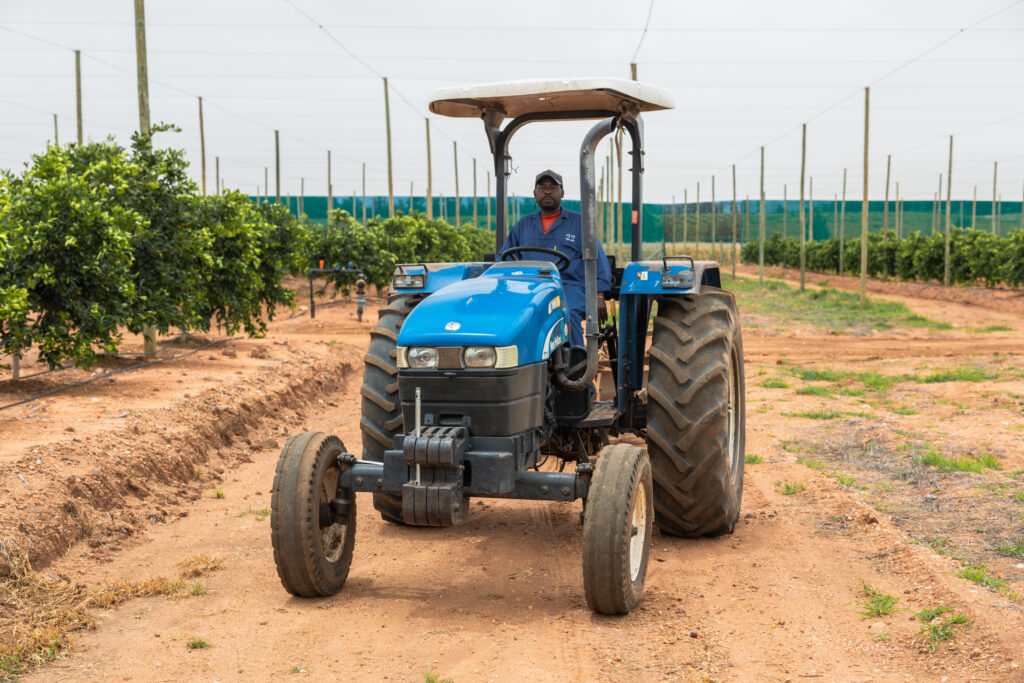Corona beer and lime go together like pap and meat. So the decision to pump millions of Rands into lime production has been welcomed as South African Breweries (SAB) continues to invest while ensuring sustainability throughout Mzansi communities
An investment worth R19 million by the South African Breweries (SAB) in the Moletele community in Limpopo has created much-needed jobs, revived the economy of the area, and enhanced lime production to benefit Corona beer across Mzansi.
Vice president of cooperative affairs at SAB Zoleka Lisa said considering the state of the economy and lack of jobs in the country, they have taken a bold decision to ensure that Corona beer is brewed and produced locally.
Lime production on the rise
“A few years ago, we found ourselves in a predicament that there was a Corona lime shortage in South Africa and an opportunity arose that we landed in the Moletele community where they are farming lime. While there are 90 000 hectares of citrus orchards in the country, less than 10% of the land is dedicated to limes.
“The investment that we made here included buying equipment, upskilling of the farmers, the technology needed, and last year we harvested for the first time since we began in 2020. We are standing at 1.1 million limes from this community to help us with Corona beer production,” she said.
Lisa added that their investment does not only end in ensuring that the limes are just produced, they also buy them to ensure there is sustainability in the community.
Local is lekker
“To the community, you are producing something so unique to the world, and as SAB we are so passionate about buying local. At least 95% of everything that goes into SAB beers comes from local,” she said.
The chairperson of Moletele Community Property Association, Albert Thabane, said the community is appreciative of the partnership that has revived the area and created jobs for community members.
“We, as the Moletele community, are very fortunate that SAB chose to work with us, and this would not have happened if it was not because of our good partnership with the Komati Group.

“There were rocks everywhere but the Komati Group came through for us and we managed to start farming and that made us happy. We are also working closely with the traditional council of the area and we are happy to announce that besides seasonal workers, we have 14 permanent employees hired from this project,” he said.
‘We are using our land’
Thabane said the 4 000 members who are part of the CPA, are very grateful for the project. “The message from the people is that the government has given us the land and because we are using the land, the value of the land has increased. That is what we are grateful for.”
One of the beneficiaries who is working at the farm, Pontsho Mathebula, said the project allowed her to work and provide for her family and support her kids through employment on the farm.
Another worker, Jackson Mokuse, said he is hopeful that the project is going to hire more people, especially those who have qualifications and are finding it difficult to find work and are sitting at home. He said the project would enhance the community in the long run.
A team effort
According to SAB, the agreement which was entered into in 2020, saw SAB provide financial support to the tune of R19 million, while the Komati Fruit Group brought in farming expertise and skills development, and the Moletele community contributed the land.
“All parties to the tripartite partnership are equally and actively involved, and that dedication has made Moletele Corona Limes, as the fruit is called, not only a reality but also a benchmark for lime farming in South Africa,” SAB said.
Minister of agriculture, land reform and rural development Thoko Didiza highlighted the importance of partnerships and collaborations to end poverty and unemployment.
Partnerships key to success
“This collaboration sets a positive precedent for future community-private partnerships in agriculture, showing a great potential to drive sustainable economic development. Stakeholders involved in the Moletele Limes project express optimism about scaling up successful initiatives to benefit communities, which is heartening.
“As a government, we are encouraging similar collaborations across the agricultural sector, with equal impact on the farming industry as well as communities at large. It is a sure way to build a more resilient, self-sufficient, and prosperous agricultural landscape for South Africa,” she said.
Didiza said the partnership was a purpose-driven intervention that truly exemplifies the beer economy in action and shows the unique power of beer to propel South Africa forward.
“In our commitment to invest in local industries that are connected to our supply chain, we are anchored in the farming fraternity, especially emerging farmers. Moletele Corona Limes are born out of that charge, and the fruit of this partnership has elevated the production of limes in South Africa, ensuring an all-year supply of the crop,” she said.

